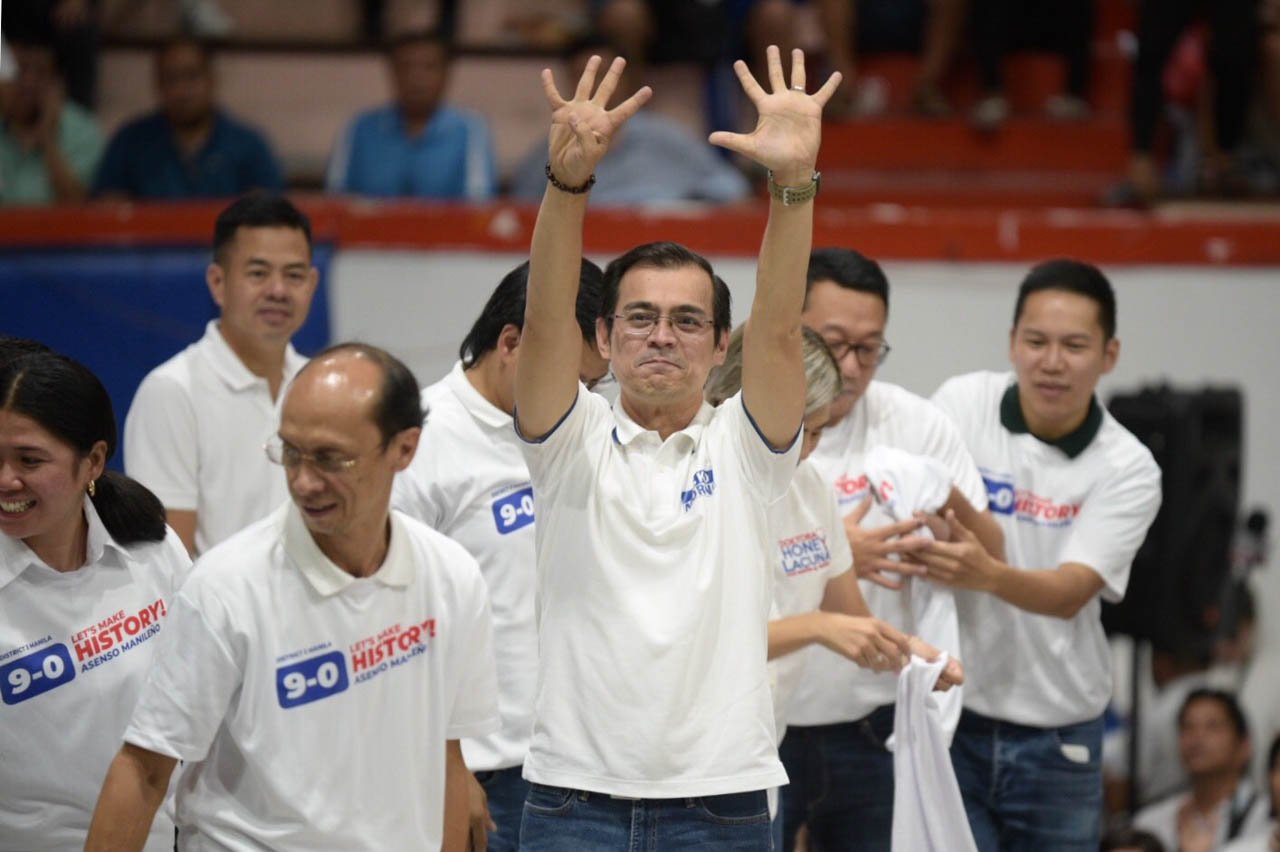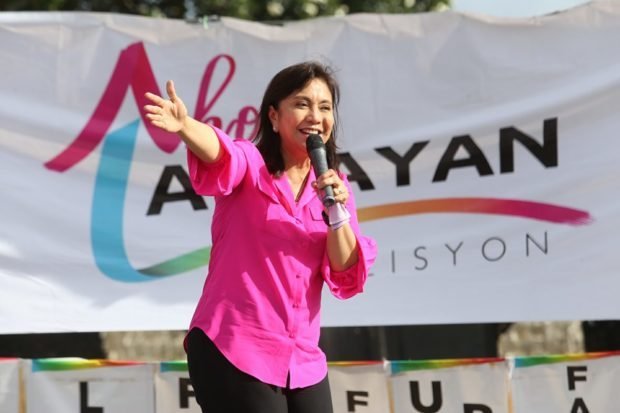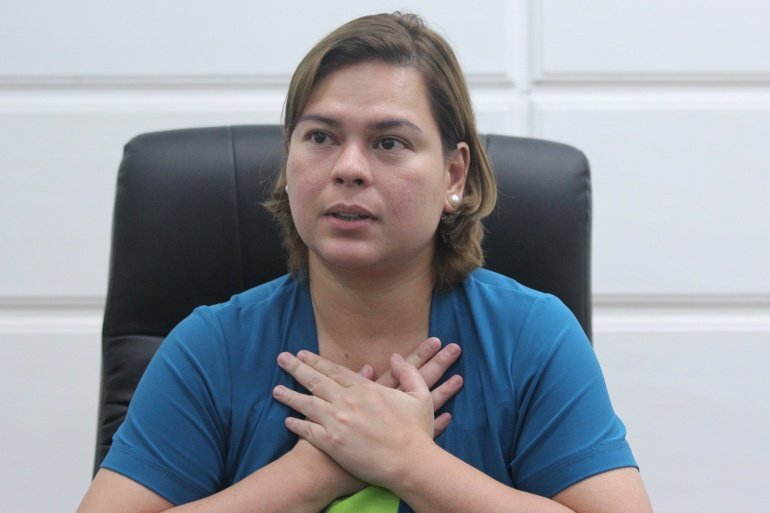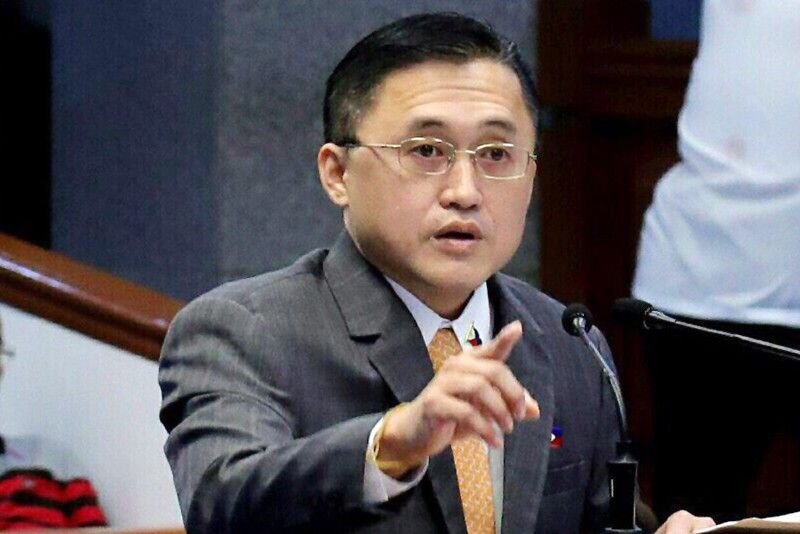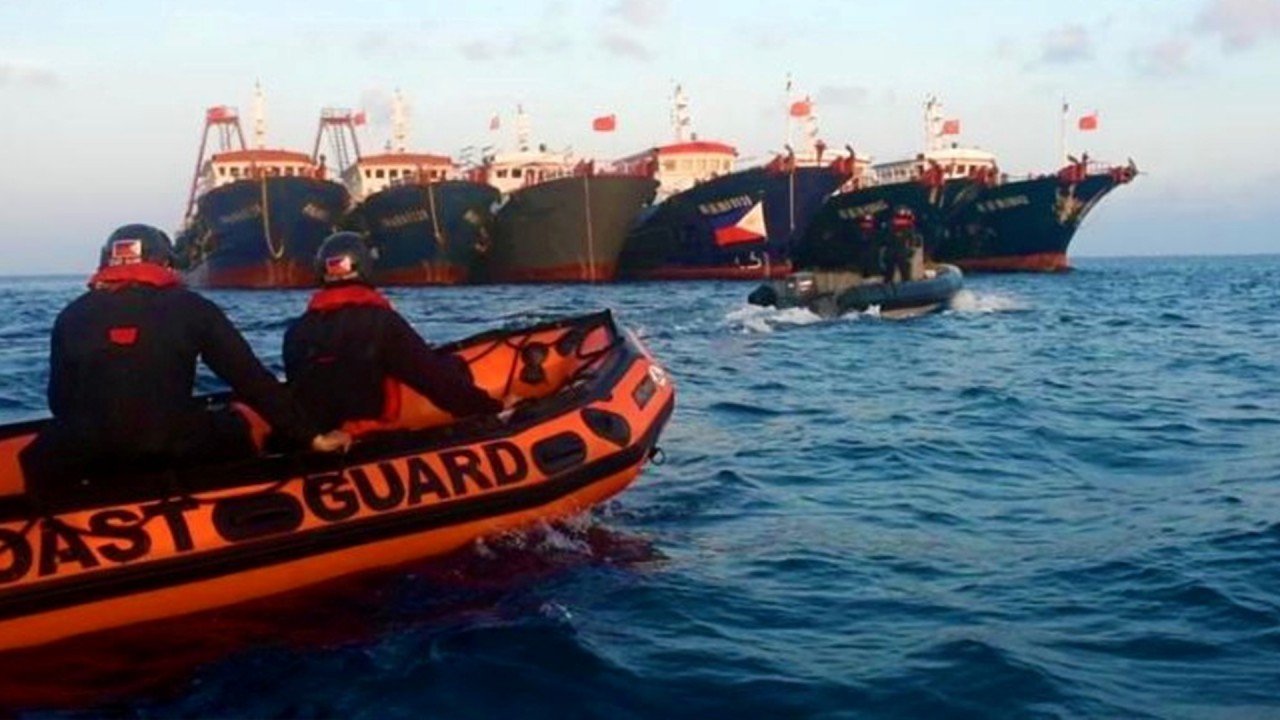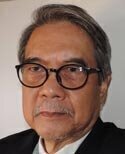Vote for Change or Live with Tragedy
/The results, especially on the national level, will tell us if Filipinos can expect to reclaim democracy from the clutches of authoritarianism, or if we’re headed for the continuation of the quasi-strongman regime that we elected in 2016, or its more blatant version that we rejected in 1986.
If every election in the country holds the promise of change, the coming political exercise is no different. Except that this one may yet see nominal change if the elected president who will eventually control the levers of political power will rule in the old way, that is, practice patronage politics of the worst kind and perpetuate poverty and corruption that have been the bane of the country for as long as we can remember.
But we cannot also discount the possibility that the electorate may yet spring a surprise, and sweep into office the candidate who can deliver on the promise to respect human rights, turn the economy around and rescue Philippine democracy from politicians lusting for power for their own personal interests.
Who's running?
It's a six-cornered fight for the Philippine presidency.
First to declare his candidacy was Senator Panfilo "Ping" Lacson, a former chief of the Philippine National Police during the short-lived Estrada administration. He ran unsuccessfully for the presidency in 2004 garnering a mere 11 percent of the total vote. He has partnered with Senate President Vicente "Tito" Sotto, a former comedian and TV variety show co-host, who is also a former vice mayor of Quezon City. The tandem's battle cry is "Ayusin ang Gobyerno," loosely translated to "Clean Up the Government," to tout a broad anti-corruption platform.
Senator Panfilo Lacson (Source: Rappler)
Manila Mayor Francisco "Isko Moreno" Domagoso followed suit. A former movie star who says he grew up poor in the city of Manila's ramshackle Tondo district and even worked in his early years as a scavenger, Moreno managed to finish college and to get elected as city councilor and later as vice mayor. Under the Duterte administration, he worked for a time as an undersecretary in the Department of Social Work and Development before winning the mayoralty race in 2019 by pulling an upset over former President Joseph "Erap" Estrada. "As mayor, Moreno has built school buildings, affordable housing units for the poor, hospitals and COVID -19 facilities, and launched cleanliness and sidewalk clearing operations in the crowded metropolis. He declared his candidacy along with his teammate, Dr. Willie Ong, a popular social media personality who tackles medical and health issues and has vowed to help in the government's fight against COVID-19.
Mayor Francisco "Isko Moreno" Domagoso (Source: Rappler)
Senator Manny Pacquiao, or "Pacman," the retired eight-division world boxing champion, a feat unrivaled in the entire history of the sport, declared his candidacy after returning to the country in August from an unsuccessful boxing match against an unheralded middleweight division fighter. An ally of President Duterte since 2016, he recently distanced himself from the administration by calling its response to the territorial and maritime dispute with China as "lacking" and its handling of the COVID-19 health crisis as "mismanaged." Pacquiao also assailed corruption in the Duterte administration, particularly irregularities in the disbursement of cash assistance to poor families adversely affected by loss of jobs and income opportunities due to prolonged lockdown restrictions. With his vice-presidential candidate, House Deputy Speaker and former Manila City Mayor Lito Atienza, Pacquiao is gunning for the highest elective post on an anti-poverty and anti-corruption platform.
Senator Manny Pacquiao (Source: Insider.com)
Vice President Leni Robredo declared her availability to run for president right on the deadline for the filing of certificates of candidacy on October 8. She was chosen by 1Sambayan, a selection committee composed of eminent personalities highly respected in their chosen fields on the basis of the following criteria: integrity; competence; track record; patriotism; vision for our country; and winnability. Robredo has chosen Sen. Francisco "Kiko" Pangilinan, president of the opposition Liberal Party, as her vice-presidential candidate. The tandem has vowed to restore democracy, which they accuse the Duterte administration of damaging because of its authoritarian policies since 2016.
Vice President Leni Robredo (Source: Inquirer.net)
The 64-year-old only son of the ousted dictator Ferdinand Marcos, former Sen. Ferdinand "Bongbong" Marcos Jr., ran but lost to Robredo in the 2016 vice presidential race, He filed his certificate of candidacy also at the last minute and is running under the banner of the Partido Federal ng Pilipinas (PFP). Marcos Jr.'s running mate is presidential daughter and Davao City Mayor Sara Duterte-Carpio.
Bongbong Marcos (Source: Yahoo News)
Duterte-Carpio ended all speculation about her political plans when she declared that she would be running for vice president under the Lakas-CMD party. She had been expected to run for president given what seemed to be popular clamor for her do so, ostensibly so she could continue whatever positive reforms her father had started during his term. She had repeatedly denied any interest in running for the highest post even when she topped popularity surveys by various polling firms, seemingly reflecting her father's high popularity ratings, until recently. But she is no stranger to controversy as photos of her punching a court sheriff implementing an order to demolish illegal structures in Davao City put up by homeless people appeared on media. The outspoken local executive also raised hackles when she said something to the effect that "honesty is not an issue as politicians lie all the time."
Mayor Sara Duterte-Carpio (Source: Al-Jazeera)
Sen. Christopher "Bong" Go, who had earlier filed his candidacy for vice president under the banner of the Cusi wing of the divided Partido Demokratiko Pilipino-Laban ng Bayan (PDP-Laban), has changed his mind and now wants to run for president, with no less than Rodrigo Duterte as his running mate. In the unlikely event that he wins, critics ask: will the longtime loyal aide of Duterte continue to play second fiddle to his former boss who could be the real power behind him?
Senator Bong Go (Source: Philstar)
Bong Go replaced Sen. Ronald de la Rosa, a former chief of police who presided over the ongoing violent war on drugs unleashed by Duterte in 2016 filed his certificate of candidacy for president at the last minute on October 8. Backed by the Duterte-Cusi wing of the PDP-Laban, de la Rosa had not been taken seriously as he was widely believed to be just a placeholder for somebody else, none other than Duterte's gofer, Bong Go, it turns out.
What issues must the candidates address?
The presidential and vice presidential candidates must deal with a number of issues that are inter-related and require urgent attention.
First of these would be to effectively respond to the health crisis brought about by the COVID-19 pandemic which may well persist until next year. This is crucial because it holds the key to economic recovery.
Lockdown restrictions since March 2020 have devastated the Philippine economy, leading to loss of many jobs and the closure of many business establishments.
The challenge for the next administration is to stimulate economic recovery by providing incentives to the private sector to reopen businesses shut down by the pandemic.
This would of course depend on the ability of the healthcare system to deal with any surge in COVID-19 cases by next year.
The COVID-19 pandemic remains a challenge as the health care system is already burdened with the large number of cases. (Source: Straits Times)
The new administration should be able to inspire investor confidence by uniting Filipinos behind reforms in various areas of endeavor and thus achieve political stability.
All the candidates will no doubt seek votes by claiming to stop corruption dead on its tracks. But the next administration must demonstrate strong political will in bringing crooks to justice. The World Bank has said in no uncertain terms that no less than one-fourth of the total annual budget is lost to corruption. The new administration must show that it is prepared to do battle with the corrupt, whether big or small, and that taxpayers' money is spent infrastructure and vital social services and does not go to private pockets.
At the same time, the next administration should be able to show that it has a comprehensive plan to substantially reduce poverty levels to manageable levels within six years. Will the new government continue the Conditional Cash Transfer Program to poor families started by previous administrations?
But even during the campaign that officially starts in February next year, media, groups involved in voters' education and ensuring clean and honest elections should be able to ask candidates the hard questions, apart from those on COVID-19 response, economic recovery, corruption and poverty.
Just as important is to ask the candidates these questions:
Can you categorically state that you will protect and uphold the Bill of Rights in the Constitution, including freedom of speech, of expression, or of the press, or the right of the people to peaceably assemble for redress of grievances?
How do you intend to solve the longstanding communist insurgency? Will you go for an all-out military solution, or would you rather try to reach a negotiated settlement with the rebels? Or perhaps a combination of the two?
Three, how will you deal with criminality, including trafficking in illegal drugs? Will you continue the Duterte administration's violent war on illegal drugs, or deal with it differently?
What will be your policy with regard to China, particularly on the ruling of the Permanent Arbitral Tribunal validating our maritime claims in the West Philippine Sea that's part of our Exclusive Economic Zone?
Philippine Coast Guard montioring the encroachment of Chinese fishing vessels in the West Philippine Sea (Source: South China Morning Post)
How do you intend to modernize the country's infrastructure in the next six years? What will be your priorities?
Do you agree that we should amend the economic provisions in the 1987 Constitution that prohibit full foreign ownership of certain industries so we can attract more foreign investments?
What will be your policy toward agriculture? How do you intend to achieve long-term food security?
What is your stand on labor contractualization? Should it be abolished as a matter of policy?
What will be your administration's program on energy security and policy on renewable energy development?
How do you propose to improve the country's healthcare services given our experience with COVID-19?
How do you intend to improve the country's educational system?
How do you propose to solve the acute housing shortage in the country?
Are you willing to provide affordable housing to the homeless?
And lastly, what support will your administration give to the Bangsamoro Autonomous Region in Muslim Mindanao or BARMM so it can do its work well in promoting peace and development?
Who's likely to win?
If recent popularity surveys are any indication, the frontrunners at this point are Bongbong Marcos, Isko Moreno, Manny Pacquiao, with Leni Robredo, Ping Lacson hot on their trails. Since Bong Go had not declared his presidential run up to last week, he has not figured as a major player in the presidential contest in the latest surveys.
Those surveys, it must be borne in mind, are mere snapshots of the opinion of voters at the time they were made. With five months to go before the May 2022 elections, we can expect big changes in the survey rankings of the candidates by end-April next year.
Apart from explaining to the electorate what they stand for, the individual candidates must hurdle many obstacles along the way.
“If Filipino voters allow themselves to be taken for fools by power-hungry politicians, expect the May 2022 elections to be a colossal farce and an unmitigated tragedy.”
Bongbong Marcos faces a disqualification charge for having been found guilty of not paying his income taxes when he served in government in the early 1980s. Will the Commission on Elections, dominated by Duterte appointees, be able to decide on his case by next month and allow him to run, or will they exercise utmost independence, decide based on the facts and stop him from pursuing the presidency?
Another stumbling block for Marcos Jr. is his persistent refusal to acknowledge that human rights abuses and massive corruption took place during his father's rule. Critics, including those who were imprisoned as political prisoners during martial law, want him to apologize for the excesses of that period, and to return public wealth stolen by his father, something which he obviously does not want to.
Bongbong Marcos and Sara Duterte were wedding sponsors at the recent wedding of Gianna Revilla, daughter of Sen. Ramon “Bong” Revilla Jr. and her boyfriend Jed Patricio. Marcos and Duterte-Carpio just announced on Tuesday, Nov. 16, 2021, that they are running together for president and vice president, respectively. (Source: Mayor Sara Duterte’s facebook page)
Marcos Jr. is already 64 years old, and probably thinks this is his last chance to grab the presidency before he becomes too old to rule the country. And this is perhaps the reason why Sara Duterte agreed to be his teammate as she can very well wait six more years to run for president by proving herself as VP from 2022 to 2028.
And not to forget, Robredo already gave Marcos Jr. a bloody nose in the 2016 vice-presidential race. Bongbong lodged a poll protest that ran for five years and again, Robredo gave him another bloody nose this year when the Presidential Electoral Tribunal junked his poll protest with finality. Would it be different next year, with Marcos Jr. exacting sweet revenge? That remains to be seen.
Marcos Jr.'s supporters have launched an aggressive campaign in social media such as Facebook and Twitter to depict the Marcos regime from 1965 to its downfall in February 1986 People Power revolution as the country's "golden age" because the imposition of martial law supposedly imposed discipline among Filipinos and facilitated the completion of infrastructure projects. Marcos Jr. has also denied allegations of massive corruption during his father's tenure, despite a number of court verdicts that found plunder of the national treasury had actually taken place during 14 years of martial law.
Isko Moreno's survey numbers are going north, no doubt fueled by positive feedback for impressive performance as mayor of the country's capital. It's true that he has been able to do many things in the short span of three years at the helm of the city government, but there are also those who say he is too ambitious, and must first be able to prove his mettle at the national level, as senator, for instance, and get himself acquainted with the problems of the country as a whole and what needs to be done.
Manny Pacquiao was the first to file his certificate of candidacy for president before the Commission on Elections on October 1 and introduced his chosen vice-presidential candidate, House Deputy Speaker and former Manila Mayor Lito Atienza. He had been endorsed last month as presidential bet by a faction in the ruling party, PDP-Laban, that he headed along with Sen. Aquilino "Koko" Pimentel III. Pacquiao obtained the endorsement of the Progressive Movement for the Devolution of Initiatives (Promdi), a political party based in Cebu province, which has one of the largest voting populations in the country.
There have been at least three issues raised by critics against Pacquiao’s candidacy. One, that he is "only" a boxer. Two, that he had not been educated enough to aspire for the highest elective post. And three, that having concentrated on his boxing career until recently, he has no experience in governance despite being elected a lawmaker. He also has been criticized as an absentee lawmaker.
Pacquiao says it takes discipline and hard work to prepare himself for every fight, and he brings these and the determination to overcome great odds in his decision to run for president. He also says that he has completed high school, obtained a degree in Political Science, and also attended seminars and short courses on Public Administration, particularly after he became a congressman in 2010. As a senator, he says, he continues to have hands-on training on the legislative process and has become more aware of various issues in the political, economic and cultural fields that need to be addressed. His camp says he aspires for the presidency with a clear focus on fighting poverty and corruption in the country.
Robredo has been languishing in the bottom rungs of popularity surveys, no doubt partly the result of the non-stop barrage of attacks by Duterte himself and online trolls on her character and competence. But she has worked quietly with a limited annual budget and showed her ability to relate with those she refers to as the "laylayan" (the bottom of Philippine society) or the common people. She has actively helped in combating the COVID-19 pandemic and is considered the only genuine opposition candidate by her avid supporters because of her consistent stand against the authoritarian drift of the Duterte regime.
Ping Lacson's second stab at the presidency after a disastrous one in 2004 does not inspire much confidence in his competence as a future president even as he has been consistent in his anti-corruption advocacy. While he manages to land in the front pages of newspapers with every revelation of corruption in various government agencies, this apparently does not convert into political mileage needed to lift him up the survey ratings. A change of strategy, perhaps?
As for Bong Go, while his fervent followers want to portray him as the "Kuya" or Big Brother to whom you can always turn for help through what he calls Malasakit Centers, he is no stranger to controversy either, mainly because of his extraordinarily close association with Duterte over the years and full support for whatever Duterte says and does. Go denies having had any hand in the appointment of an undersecretary in the Department of Budget and Management (DBM) who allegedly awarded billions of pesos worth of government contracts to Pharmally, a pharmaceutical company that only had less than a million pesos in paid-up capital. Senators discovered that the Procurement Service of DBM bought allegedly overpriced face masks and RT-PCR test kits from the company, whose executives are accused of fraudulent schemes in Taiwan, instead of procuring from local suppliers that were selling cheaper items.
Meanwhile, as election fever grips the nation, Rodrigo Duterte, not content with six years in power as president, is running for the Senate in next year's elections. Will he sit in the august halls of the Senate if elected? That will all depend on the International Criminal Court, which is investigating him for crimes against humanity during his bloody war on illegal drugs between 2016 to 2019, and intends to bring him to justice if found to be accountable for murder and mayhem during those years.
President Rodrigo Duterte (Source: Elaine Lopez/Reuters)
What now?
Anyone can run for the two highest elective positions in the Philippines, provided he/she fulfills the basic requirements enumerated in the 1987 Constitution: being a natural-born citizen of the Philippines; a registered voter able to read and write; at least 40 years of age on the day of the election; and a resident of the Philippines for at least ten years immediately preceding such election.
That list of qualifications has been criticized as grossly inadequate. There's the proposal to include "college graduate" to replace the mere literacy requirement. Or "of sound physical and mental health" as the top leaders need to be hale and hearty to meet the hectic demands of their positions. Or even "capable of conducting a nationwide campaign."
But the Constitution obviously listed only the minimum requirements, which would cast a wide net according to democratic principles and not unfairly limit the choices to a few.
The opposition group 1Sambayan recently endorsed the presidential bid of Vice President Leni Robredo on the basis of six criteria: integrity; competence; track record; patriotism; vision for our country; “winnability.”
These standards, however, are not enough. From where we sit, the next president also should have a genuine commitment to democracy. All those who run for the highest public office in this country must clearly say they stand for democracy, and pledge to consult the people in making key policy decisions.
Political dynasties are anathema in a democratic system, as they tend to perpetuate elites in power. Dynastic politics is what we are seeing in the candidacies of the Duterte, Marcos and other families on both the national and local levels. It does not bode well for the future of Philippine democracy.
Rodrigo Duterte recently admitted his family’s standing as a political dynasty, arguing this is not bad at all since there is no law against it. (The constitutional ban against dynasties left it to Congress to pass an enabling law, which it has not.)
The is now the sickening, circus-like spectacle of two political dynasties vying for absolute control of the country's political system by manipulating the candidate substitution process allowed by current election laws.
If Filipino voters allow themselves to be taken for fools by power-hungry politicians, expect the May 2022 elections to be a colossal farce and an unmitigated tragedy.
Ernesto M. Hilario studied Political Science at the University of the Philippines and has worked for various government agencies, NGOs and mainstream media since 1978. He writes a regular column for the Manila Standard broadsheet and also works as a freelance writer-editor.
More articles from Ernesto M. Hilario



